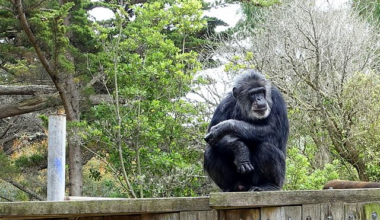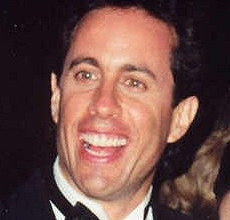
I am in a minority. As an atheist who supports the aims of the National Secular Society and Humanists UK in almost every other area, including abortion, I find I am at odds with most of my fellow humanists on the issue of legalising assisted suicide and euthanasia (ASE). But there are excellent secular reasons for opposing ASE.
Assisted suicide—or, as some euphemistically call it, ‘assisted dying’—is in the news again, thanks (among other things) to the tabling of an ‘assisted dying’ bill in the Scottish Parliament and the publication in February of a Health and Social Care Committee on Assisted Dying/Assisted Suicide report. Countless legislative attempts have taken place in this and other countries to legalise ASE. Keir Starmer, who favours legalisation, may well dedicate government time to the issue, should he become Prime Minister.
First, we need to be clear about what we are discussing. Euthanasia (from the Greek ‘good death’) is where the doctor acts to end life. It can be voluntary or involuntary. Passive euthanasia is death by omission, i.e. when doctors, either of their own volition or at the request of the patient, purposefully end medical treatment, leading to death. Passive euthanasia might also include a patient refusing food and drink but still being kept comfortable by medical attendants. Such acts are legal. Assisted suicide is when the doctor provides the means but the patient takes the final action. ‘Assisted dying’, or ‘Medical assistance in death’ (MAiD), appears to be a compendium term that might or might not include some of the above. It does not bring clarity to the issue. In fact, as we shall see, it confuses people.
[H]umanists should be suspicious of a campaign that uses comforting but vague terms like ‘assisted dying’ to market its ideas.
We should also be clear in our language—and humanists should be suspicious of a campaign that uses comforting but vague terms like ‘assisted dying’ to market its ideas. We atheists reject mythology and face facts, yet this term is used uncritically. If a doctor hands you a gun and you shoot yourself, that’s assisted suicide. If she hands you a rope and you hang yourself, that’s assisted suicide. But if she hands you poison and you ingest it knowingly and with the intention of ending your life, we are meant to believe that it is not suicide but ‘assisted dying’? It is no good substituting comforting new myths for old ones.
Moreover, the term ‘assisted dying’ does not help public understanding. In a UK poll conducted in 2021, when asked ‘What do you understand by the term “assisted dying”?’, 42% of Brits polled thought it meant ‘Giving people who are dying the right to stop life-prolonging treatment’. As noted above, this is a right that they already have. When proponents of ASE argue that the majority of Brits support the legalisation of ‘assisted dying’, it is useful to remember that much of what they support is already legal.
I am against a change in the 1961 Suicide Act, not to the rare situations where death is hastened as a byproduct of preventing suffering. Assisting a suicide should remain a crime, as should giving someone a lethal injection, even at their request. I am not against someone hastening their own death by refusing medical treatment or refusing food and water, which is already legal, because individual freedom from unwanted physical intervention trumps our need as a society to save lives.
There are four basic reasons why humanists should join with religious folk in opposing legalized assisted suicide and euthanasia. First, it is not necessary, being built on an irrational fear of a bad death. Second, though many who support the campaign do so out of compassion, utility is the real force behind campaigns; some citizens—particularly those who are disabled or elderly—are inevitably valued less than others. Third, where it has been legalized, real harms have occurred. Fourth, one need not believe in God to conclude that we, as a society, should strive to prevent rather than assist or encourage suicide. Let’s take these arguments in turn.
A fear-mongering campaign
The campaign to legalise assisted dying often plays on people’s fears of how they and their relatives might die. Indeed, many of us have witnessed difficult deaths. But organizations like Dignity in Dying play on our fears. In 2019, the CEO of Hospice UK, a charity that works with those experiencing death, dying, and bereavement, publicly chastised Dignity in Dying for the ‘sensationalist and inaccurate’ portrayal of death in a video to accompany its ‘The Inescapable Truth’ campaign.
Dignity in Dying removed that particular video but it continues to claim that 17 people will suffer as they die every day. What it does not say is that that number is about 1% of an estimated 1,700 people who die every day in the UK. Moreover, ASE will not help those at the end of life. In the Netherlands, where it is legal, up to 42.8% of people experience pain and/or restlessness in their last hours of life. And tellingly, in Oregon, one of the supposed success stories of ‘assisted dying’ legalisation, pain does not feature in the top reasons why people opt for death. This is about existential, not physical, pain.
The (relative) value of lives
ASE’s progressive image is undeserved. Euthanasia was but a branch of the campaign for eugenics when it was first raised as an idea. As the German zoologist Robby Kossmann put it in 1880, ‘the human state . . . must reach an even higher state of perfection, if the possibility exists in it, through the destruction of the less well-endowed individual . . .’
In 1920 Karl Binding and Alfred Hoche published a pamphlet entitled Permitting the Destruction of Life Unworthy of Living. They argued that ‘there are indeed human lives in whose continued preservation all rational interest has permanently vanished’. The German psychiatrist and neurologist Robert Gaupp targeted mentally disabled people when he said that it was time to remove ‘the burden of the parasites’. In this context, we need to remember that Canada today is considering extending euthanasia to those who suffer only from mental illness.
Legalising assisted dying would be a huge step in the wrong direction. It will lead to some people’s lives—on physical, or sometimes mental grounds—being deemed as not worth living.
The utility reasoning also exists today, though proponents of ASE are shyer about mentioning it than their predecessors. A Canadian government report entitled Cost Estimate for Bill C-7 “Medical Assistance in Dying” sees savings of up to $53,264 per patient with ASE. Are we meant to believe it when the report’s authors demur that ‘this report should in no way be interpreted as suggesting that MAID be used to reduce health care costs’?
Let’s look at the evidence from countries where ASE is legal. Though every country where it is legal justified changing the law with reference to cases involving the terminally ill, the use of death as a solution for medical and social problems followed. Thirty-nine people suffering only from autism and/or other intellectual disabilities—nearly half of them under fifty—have been euthanized in the Netherlands, where assisted suicide and euthanasia have been legal since 2002. One was an autistic man in his twenties. His record said that he was a victim of regular bullying, that he ‘had felt unhappy since childhood’, and that he ‘longed for social contacts but was unable to connect with others’. On this basis, and at his request, his doctor euthanized him.
Across the Low Countries (Belgium legalized euthanasia in 2003), prisoners, children, those suffering only from dementia, and young people with clinical depression have been euthanized.
Given that, in one large study, over half of the patients predicted to die within a particular period of time lived longer than expected, it is likely that thousands of people who have died from euthanasia have had their lives cut short. Those who, like me, oppose capital punishment worry that innocent people will be killed by an imperfect system, yet few seem to use the same reasoning when it comes to ASE.
Should we prevent suicides?
Perhaps the biggest harms, however, are intangible. There are signs, particularly with the COVID-19 crisis, that some no longer adhere to the principle that human lives—whether rich or poor, black or white, young or old—are equally worthy of protection. We view suicide as generally negative because we value our fellow human beings, even if they do not value themselves. Not all suicides are wrong, but it should be our basic position that we prevent suicides when we can.
As the humanist sociologist and pioneering author of Suicide, Emile Durkheim, remarked over a hundred years ago:
‘. . . [S]uicide must be classed among immoral acts; for in its main principle it denies [the] religion of humanity. . . . No matter that the guilty person and the victim are one and the same . . . If violent destruction of a human life revolts us as a sacrilege, in itself and generally, we cannot tolerate it under any circumstances.’
Of course, many who favour legalised ASE support suicide prevention. But how do they differentiate the two? As Not Dead Yet, an organization of disabled people opposed to ASE, points out, it is assumed that those with fewer years left and those with disabilities lead less valuable lives and, thus, are directed towards ASE—while others are strenuously prevented from killing themselves. Legalising assisted dying would be a huge step in the wrong direction. It will lead to some people’s lives—on physical, or sometimes mental grounds—being deemed as not worth living. That would be a dire and dangerous situation. There is wisdom yet in the famous old Christian precept, Thou shalt not kill.
More on the assisted dying debate
National Secular Society podcast on the 2021 Assisted Dying Bill: Emma Park interviews A.C. Grayling and Molly Meacher, Baroness Meacher
Bishops in the Lords: Why are they still there? by Emma Park
Assisted dying: will the final freedom be legalised in France? by Jean-Luc Romero-Michel








17 comments
Personally, I prefer ‘deliverance’ to terms like assisted dying, assisted suicide, voluntary euthanasia or Medical Assistance in Dying and it was adopted by the old Voluntary Euthanasia Society. Whether a patient or a doctor initiates an intravenous infusion seems to me a matter of style rather than substance but the Swiss regard it as a crucial distinction.
Dr Yuill is not a clinician and is unlikely to be familiar with the significant number of patients who have horrible deaths despite good palliative care. I suggest he reads The dying process. Patients’ experiences of palliative care (Routledge, 2000) by J Lawton. She worked as a hospice volunteer for six months to research the subject. Among the many successful managements of death were some notable failures, including a patient with a skin tumour that turned into rotting flesh. “The stench created by Annie – who lingered for six weeks – reached to the reception area and was so dreadful that badly-needed beds vacated by dead patients were not refilled.” Since Annie was probably not in much physical pain, large doses of morphine and ‘double effect’ casuistry could hardly be justified. What alternative to some form of deliverance would Dr Yuill suggest if Annie requested it? Or for people with locked-in syndrome? Yuill talks about ‘famous old Christian precept[s]’ but Tony Nicklinson’s predicament and pleas for deliverance from his ordeal persuaded former Archbishop of Canterbury Lord Carey to support a law that is not restricted to the terminally ill.
Does Yuill really share Durkheim’s 19th C view that ‘suicide must be classed among immoral acts’? Even the C of E has recently decided that rational suicides can have a decent Christian burial in consecrated ground, 1600 years after St Augustine anathematised it as a sin worse than murder. Rome has not yet followed Canterbury in this respect. Does Yuill support the Vatican view? Perhaps that is why his book received such a scathing review (Brassington I. https://blogs.bmj.com/medical-ethics/2013/07/03/book-review-kevin-yuill-assisted-suicide-the-liberal-humanist-case-against-legalization-2/)in the BMJ.
Finally, do ‘Humanists Against Assisted Suicide and Euthanasia’ have enough members to merit a ‘CEO’? How many of you are there?
Kevin Yuill sounds like he works for the Vatican. If he doesn’t like Voluntary Assisted Dying, then he need not participate in any way. Simple.
Weak, offensive, and utterly unconvincing.
I am frankly staggered that the Freethinker should publish such tripe as this. Every viewpoint must be aired, of course, in support of the doctrine of free speech. But this piece is full of absurdities. One example: “There are signs, particularly with the COVID-19 crisis, that some no longer adhere to the principle that human lives … are equally worthy of protection.” I believe this sentiment stems from a misunderstanding of general political statements – as for example in the US Constitution – that “all men [sic] are equal”. This of course is extremely misleading. Clearly nobody is equal in abilities, looks, intelligence, probity, strength etc; nor in moral worth (Obama equals Hitler?) What moral philosophers and scholars of jurisprudence (of whom I am one) mean when supporting equality is that, in the devastating and moving words of Rawls, “each one is to count for one.” It certainly does not mean that people are of equal value and nobody could seriously maintain that after a few seconds of reflection.
Secondly, it is a truism dating back to Socrates that life is tragic. Hardy offers this: “Happiness is only an occasional episode in the general drama of pain.” (from memory, end of “Tess of the d’Urbervilles”) One of the very few insights of organised monotheism is that life is a ‘vale of tears’ (which we must endure before the bliss of eternity.) So, no, we should not attempt to prevent suicide, except, I personally believe, in certain restricted cases involving vulnerable people, especially the young.
Thirdly, the writer seems unaware that thousands of people are living lives of unspeakable pain and distress and longing for deliverance but without the means to obtain it. Is he so lacking in basic empathy that he can imagine telling such a sufferer by her bedside that because of HIS scruples, SHE must continue to live the nightmare.
Fourthly, society’s failure to honour the right to die is I believe a moral outrage equal to domestic abuse, slavery, sexual assault et al. It is also worth noting that NHS financial woes, waiting lists and much else would be removed or at least dramatically reduced by proper legislation on this matter.
The absolute soundness of the doctrine that one has the right to end one’s life without hindrances – including social and ideological pressures – trumps the feeble objections adduced here. Novelist Martin Amis (alas, deceased) used to say with only slight exaggeration that one ought to be able to walk into a British pharmacy and purchase the means of self-extinction without fuss.
(As a coda, one might add that as all climate scientists privately are convinced – despite the buffoon Attenborough -that our planet cannot be saved and we are headed for extinction, the obvious course to prevent suffering – which most moral philosophers would, with certain reservations, consider the central goal – is extinction submission and the attendant ploy of planned population reduction.)
Kevin Yuill tells us he is a humanist, secularist, atheist, except for his opposition to assisted dying. Since a basic humanist principle is the belief that everybody should have agency over their own body and be able to make choices that are best for them this is like somebody saying I am a true pacifist except I would like to give this Kevin Yuill a good hiding.
Is the man really saying that he could stand by unmoved if a close relative of his with locked-in syndrome like Tony Nicholson, would be begging him pitifully for deliverance from his 7 year long ordeal through blinking his eye, his only way of computer aided communication, without immediately starting to campaign for a change in the law, instead of battling obsessively for more than 10 years to maintain the cruel status quo. Answer yes to this question Kevin and I’ll call you not a humanist but a brute. I shall shortly be submitting a lengthy commentary to Yuill’s remarkable outburst, understandably referred to as tripe by Mark Lilly above. Watch this space.
Name correction: Tony Nicklinson
Thanks, all, for your comments. I can tell I’ve hit a nerve with some of you, which was exactly my intention. I think this dialogue should be carried on.
“Does Yuill really share Durkheim’s 19th C view that ‘suicide must be classed among immoral acts’?” Yes. I think we should continue to prevent suicide. My case, simply put, is that it is immoral to give the proverbial man standing on the ledge a push, even if he asks for it. We should instead talk him down.
Nor do I share the miserabilist anti-natalist cult that Brewer and Lilly seem to belong to. Both ascribe to Matthew Parris’s idea that the old, weak and ill should sacrifice themselves for the good of the NHS. That, it seems to me, is anti-humanism rather than humanism.
What I would love someone to answer is why we should be given a right to help with something everyone can already do themself?
By the way, the term “delivery” is only relevant if one thinks one is on their way somewhere else. That is hardly a humanist conception.
Yuill deals here with two entirely separate issues: suicide, and assisted suicide. In his latest garbled comment (paragraph two), he conflates the two. (Please reread this now to arrive at an estimate of his intellectual acuity.)
Assisted suicide is contentious, and although enjoying overwhelming public support, opponents are not necessarily cruel or fatuous. But condemning suicide itself – legalised in the Suicide Act of 1961 – is a fanatical position. It is tantamount to saying not only that people do not have this fundamental right over their own body, but that de facto they are compelled to remain in a world which may to them be a living nightmare.
Did you just send us off to budger ourselves, you sick man????
On reading your reply, I was tempted to call you arrogant and dictatorial. No, I won’t do that. Instead, I’ll call you ignorant of facts. Go work in a palliative Care unit for a year and think about an individual’s right to ask for assistance to end their suffering. If you don’t agree, you have the right not to participate.
What Mr. Yuill wrote is interesting poont of view, but in my opinion he’s mistaken the problem.
He mentioned some specific cases, and they may be controversial (although that’s depend on what person think about euthanasia) and moreover he speaks about the value of life, that we can create a situation when we less value of some people life. He also mentioned that keeping a ill person alove cost government money.
In my opinion that’s serious problem, but not with humanist act of euthanasia. The problem is to create a system that will be not abuse the right to decide od your life. So it’s important to prevent a situation when Euthanasia is advised, when we “sell it” to people who can have a better option. And that’s is in my opinion a serious problem, because a boundary between allowing something and advising something is not as clear as we want it to be.
Therefore the debate about or way to providing euthanasia may be needed.
Nevertheless, act of euthanasia alone, a as a decision of human being shouldn’t be forbidden. Every person should have rights to decide about he’s own life, even if he decide to end it up faster.
PS. I’m sorry for my grammar and orthographic mistakes. English is not my first language, and i’m not fluent in it.
In view of Yuill’s continued refusal to answer the simple question posed by Akkermans (see above) perhaps I might be permitted to add another philosophical point to those I have already adduced; a point which will make it almost impossible for Yuill not to concede without appearing absurd.
Most moral philosophers accept what is known as the principal of universalizability, essentially based on Kant but reinforced by figures such as R M Hare. Put simply, it states that if a person wishes to enforce a particular value or practice – for instance, that certain races may legitimately be enslaved – then that person has to accept being enslaved himself had he been born into a disfavoured race. Well, no reasonable or rational person (except, says Hare, a ‘fanatic’) is going to agree to that.
Applying this principle to the present case, is Yuill prepared to say that if he were himself suffering from locked-in syndrome, with all the absolute terror that such a state entails, he would wish to continue in that state without recourse to assisted suicide?
On 2/5 Kevin Yuill says: What I love someone to answer is why we should be given a right to help with something everyone can already do themself. Well, Tony Nicklinson for one couldn’t. Could Yuill now please tell us whether he would help him or at least allow that somebody should.
Tony Nicklinson could, as any competent adult who is able to communicate (which includes Tony Nicklinson) can, cause the end of his life. In fact, he did. He refused food and drink – as everyone should have the right to do – and caused his own death within 5 days. That is nine days sooner than the “cooling off period” in British proposals for assisted suicide.
I am opposed to a change in the law, not – as I clearly state in my article – to the occasional acts of mercy in very invidious situations. So I cannot say what I would do in specific circumstances. Nor do I oppose the present DPP guidelines which say that prosecutions must be in the public interest. Indeed, the 1961 Suicide Act has worked well; between 2009 and 2020, there were only four successful prosecutions under Section 2 that took place.
Yuill writes: ‘ I am opposed to a change in the law, not – as I clearly state in my article – to the occasional acts of mercy in very invidious situations.’ This is more gibberish; if it means anything at all, it means that ‘acts of mercy’ are acceptable to Yuill even though illegal under the law which Yuill himself wishes to support. So he supports a law which ex hypothesi in his view is at least in this respect (not allowing acts of mercy) defective. All of which is self-contradictory.
I would be grateful to Yuill if he considers what he wants to say carefully and inspects it for weaknesses before wasting people’s time by committing it to paper prematurely.
This is my mail / personal story which I wrote to Lord Falconer, who is designing the assisted dying bill:
I would like to ask you please to URGENTLY consider the LONGTERM-suffering people when designing the assisted dying bill.
It is endlessly cruel to allow only the SHORT-term suffering people to end their suffering, whilst keeping us LONGTERM suffering in senseless prolonged excruciating agony!
I am suffocating slowly which is the most cruel thing anyone can go through, accompanied by post-viral poisoning (your body decays alive bit by bit in unmanageable pain) which is under-researched and therefore does not give me a “terminal” diagnosis, so no end to my cruel suffering in sight!
Due to multiple post-viral damage I have to shield of viruses for ever alone trapped in a tiny flat (surrounded by drug dens with dangerous dogs, and gassed out by smoking neighbours, a stinking sewer and a diesel train, also being allergic to nearly everything), cannot go to medical appointments or dentist and cannot have visitors due to the danger of further infections.
I am suffering physically AND mentally as much as it can be! For 6 years I have been begging medical personal as well as the Government to have my suffering ended by death. Unfortunately all on dead ears! Which leaves me to pray that I get cancer soon in hope to be put in a coma, which is bed-blocking, and not available on demand anyway. More and more Brits have to decide to starve themselves to death in order to escape EVEN bigger suffering, which is INSANELY cruel to allow this even! One day it will be known for what it is: torture by the state!
If the “lethal potion” was available to me at ANY time RELIABLY, then I could even risk to go for more medical appointments for a chance to improve my situation, to sort out my permanent agonising tooth ache (although my income might not stretch to it) or risk a hug from a friend! But catching another virus would only increase my suffering which I can not afford at this point, so I have to keep suffering, can neither go direction life nor direction death! This is TOO CRUEL TO BEAR FOR ANYONE!
And there are so many suffering people out there without a voice because they are too weak to campaign, so I am writing in the name of countless people who pray for the end of their suffering, knowing many of them myself!
Also I had several friends who committed a very messy and most cruel suicide because of the lack of assistance! And yet they were the lucky ones, because if your suicide attempt fails, you end up even more crippled than before on suicide watch and nobody will listen to you anymore!
To the people (often disabled people) who don’t understand assisted dying:
Unbearable inhumane excruciating agony should be a CHOICE!
Under the current medieval sadistic law we are DICTATED to suffer!
Our bodies are kidnapped by the government and tortured AGAINST OUR WILL! And if you say you do NOT want autonomy over your own body, then you are lying!
And to the religious people: If “God” dictates humans to suffer, than he is a sadistic monster, even if it is just for creating Parliamentarians who VOTE (!) to keep mankind in prolonged senseless excruciating agony!
Wealthy and middle class people can end their suffering at Dignitas Zurich. They also have people to help them travel there. But if you are sick, alone and poor you can NOT do this! It is a discrimination against the poor once again! In fact I cannot even get a passport since you have to appear in person now because of the finger prints!
It is illegal to torture animals, but even though we human beings can articulate ourselves, there are still Parliamentarians who actually vote to keep the nation in excruciating agony! To the suffering it feels no less than sadistic and monstrous!
PLEASE I AM BEGGING YOU, give us a GENEROUS assisted dying law like the Benelux states have!
Regarding safeguards: Persuading somebody into assisted dying should be sentenced like murder, which should prevent people from committing the crime. After all we don’t stop eating, just because somebody could poison our meal. It would be as crazy and as inhumane as keeping us suffering!
Regarding “protecting people who feel like a burden or don’t want to spend their kids’ inheritance”:
I do NOT want to keep suffering because there could be someone somewhere who cannot quite make their mind up yet or doesn’t know what to do with their money (which will end up at Dignitas anyway)!
That sounds like a bad joke!
Regarding safeguards for medical staff: Switzerland has done it for 82 years! The patient signs and takes the potion on camera, with additional witnesses. For the patients who cannot do this themselves anymore: ANY kind of communication on camera expressing the will to die should be RESPECTED and acted on! Because nobody is suffering for them!
At the very least we should have an organisation like the swiss EXIT who take a low annual membership fee for health related advice, with the right of free assisted suicide after 3 years of membership. But then there are people who can not bear to suffer for 3 more years.
I have still a few good organs. I could save a few lives with my death. Perhaps giving us a chance of live donation?
People are worried that their relationship with their doctor could change; but there could be independent assisted dying clinics like in Canada!
People are worried about the “vulnerable”. But that is us, the suffering! Nobody in the world is more vulnerable than those who suffer unbearably!
Where are OUR safeguards??
We have NONE. Whilst your safeguard/piece of mind is Dignitas.
Every single second of excruciating agony is one second too much!
Thank you for listening and please don’t forget: Least of us will be lucky enough to die in a quick accident. Most of us will suffer senseless excruciating agony for a long time before being relieved by death. It will be YOU one day, and it comes quicker than you think!
In fact it should be illegal to reproduce into a country where it is not our first Human Right to end our suffering! Because at the moment our birth is our biggest trap!
There is such a thing as SLOW death! There are countless conditions which are unknown, unrecognised, under-researched and therefore not appearing in medical school books. There is NO pain management and NO palliative care! You can NOT measure suffering, so it should NEVER be made dependant on diagnosis, age (I am 55) or any time span! That is medieval and cruel!
It is IMPOSSIBLE for non-suffering people to understand permanent progressive excruciating agony! Therefore non-suffering people should NOT be allowed to vote AGAINST a generous assisted suicide law!
All we want is AUTONOMY over our OWN body! NOBODY gets something out of ME suffering! Suffering is NOT life! And ending suffering is NOT killing! It is love, compassion and humanity!
Sincerely
Marion
And to Kevin Yuill:
You won’t be the first or last “Professor” to spend a lifetime preaching against ending suffering, to then end up at Dignitas (and your friends and family too)!
You just don’t know it YET!!
P.S.: My body is not your business, so stay out of it!!
Kevin Yuill is a member of REFORM UK, with a Führer who works for Putin and Trump and worships Hitler since his early childhood! So yeah, it fits the bill that you enjoy the poor people in senseless prolonged excruciating agony, whilst being able to use Dignitas yourself! You guys should be lined up!
Your email address will not be published. Comments are subject to our Community Guidelines. Required fields are marked *
Donate